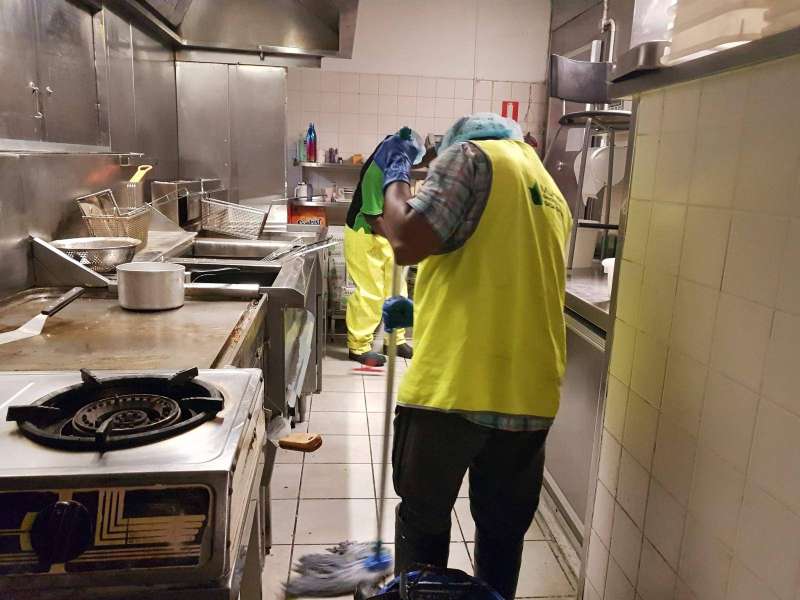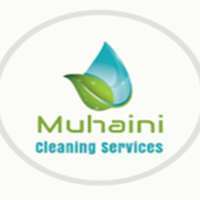Keeping your restaurant kitchen clean is critical for maintaining food safety and ensuring a welcoming environment for both your staff and customers. When it comes to commercial kitchen cleaning, there’s no one-size-fits-all answer. The frequency of cleaning depends on your kitchen's size, usage, and the type of food being prepared. This article will guide you on how often you should clean your restaurant kitchen to meet hygiene standards, comply with health regulations, and keep your space spotless.
Why Cleaning Frequency Matters in Restaurant Kitchens
Regular cleaning is more than just about appearance—it’s about maintaining a safe, hygienic environment. A clean kitchen reduces the risk of foodborne illnesses, cross-contamination, and the buildup of harmful bacteria. Plus, adhering to a proper cleaning schedule helps your kitchen meet health and safety regulations and ensures compliance with local laws.
The Ideal Cleaning Schedule for Your Kitchen
How often should I clean my commercial kitchen? Let’s break it down by cleaning frequency for various areas in your kitchen.
1. Daily Cleaning Tasks
The basics of cleanliness should be addressed every single day to prevent the accumulation of grease, food particles, and bacteria.
Counters, sinks, and food prep areas: Wipe down and disinfect to avoid cross-contamination.
Floors and high-touch surfaces: Clean spills and crumbs immediately to maintain safety and hygiene.
Kitchen equipment: Wipe down cooking equipment like stoves, grills, and ovens to remove grease build-up.
Restrooms: Sanitize all surfaces to maintain cleanliness for your staff and customers.
2. Weekly Kitchen Cleaning
Each week, your kitchen needs a deeper cleaning to maintain standards.
Kitchen equipment: Thoroughly clean ovens, microwaves, and refrigerators.
Storage areas: Organize and clean pantries and shelves to ensure there are no expired or spoiled items.
Floors: Perform a more thorough cleaning of the kitchen flooring, especially around appliances and under counters.
3. Monthly Cleaning Tasks
Once a month, perform tasks that require extra time and attention.
Grease traps: Clean grease traps and exhaust systems to prevent blockages and fire hazards.
Ventilation and HVAC systems: Remove grease from vent hoods and filters to ensure proper ventilation.
Deep scrub the floors: Use industrial cleaning machines for a deep scrub to keep floors spotless and slip-free.
4. Occasional/Annual Deep Cleaning
Certain tasks only need to be done a few times a year, but they should still be prioritized.
Exhaust systems: Clean the entire ventilation system, including exhaust fans, range hoods, and ducts.
Deep appliance cleaning: Clean behind and under larger equipment, which often gets overlooked in regular cleaning.
Factors That Affect How Often You Should Clean Your Kitchen
Not all kitchens are created equal, so the frequency of cleaning may depend on several factors:
Size of the Kitchen: Larger kitchens with more staff and equipment will need more frequent cleaning.
Type of Food Served: If your restaurant handles raw meats or greasy foods, it’s important to clean more regularly to prevent cross-contamination.
Foot Traffic: A restaurant that serves a large number of customers may require more frequent cleaning to maintain hygiene.
How Professional Kitchen Cleaners Help You Stay Compliant
Muhaini Cleaning is experienced in commercial kitchen cleaning and understands the importance of keeping your kitchen clean and compliant with health regulations. Our kitchen sanitation solutions ensure that your facility remains sanitary and free from harmful bacteria. Whether you need regular office cleaning or a deep cleaning service, we’ve got you covered.
Frequently Asked Questions (FAQs)
Q1: How much does it cost to clean a commercial kitchen in Melbourne?
A: The cost of commercial kitchen cleaning varies depending on the size of your kitchen, the frequency of cleaning, and the services required. Contact us for a customised quote for your commercial kitchen cleaning needs.
Q2: How often should I deep clean my commercial kitchen?
A: Deep cleaning is typically done monthly or at least quarterly. However, high-traffic kitchens may require more frequent deep cleaning to prevent grease build-up and maintain hygiene.
Q3: What are the benefits of professional kitchen cleaning services?
A: Professional kitchen cleaning services ensure that your kitchen is thoroughly cleaned, compliant with food safety standards, and safe for your staff and customers. We use eco-friendly products and specialized equipment for optimal results.
Q4: Can I schedule after-hours kitchen cleaning?
A: Yes, we offer after-hours kitchen cleaning services to minimize disruption during your operating hours. Let us know your preferred schedule, and we will work around your business hours.
Q5: What cleaning products do you use in commercial kitchens?
A: We use eco-friendly cleaning products that are safe for food prep areas and ensure a deep, effective clean without harmful chemicals. All products comply with health and safety regulations.
Conclusion: Keeping Your Kitchen Clean for Safety and Success
Cleaning your restaurant kitchen is vital for food safety, efficiency, and compliance. By following a regular cleaning schedule, you can ensure that your kitchen is always in top shape. If you need professional kitchen cleaning services, Muhaini Cleaning provides reliable and affordable commercial kitchen cleaning Melbourne solutions.
Get in touch with us today to discuss your kitchen cleaning needs and receive a free quote!



































